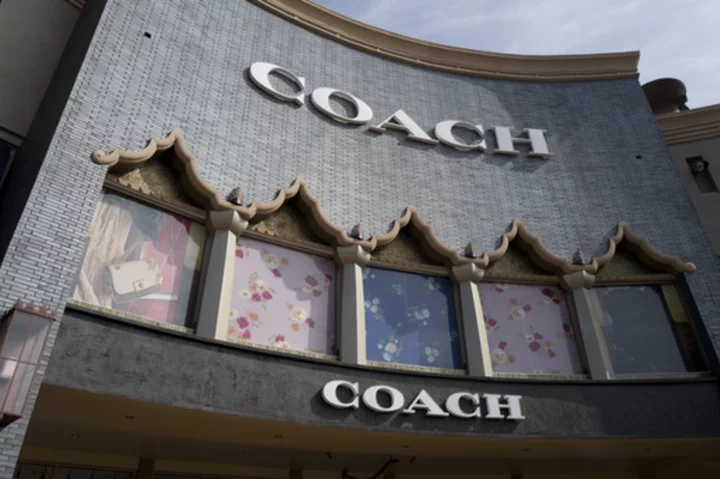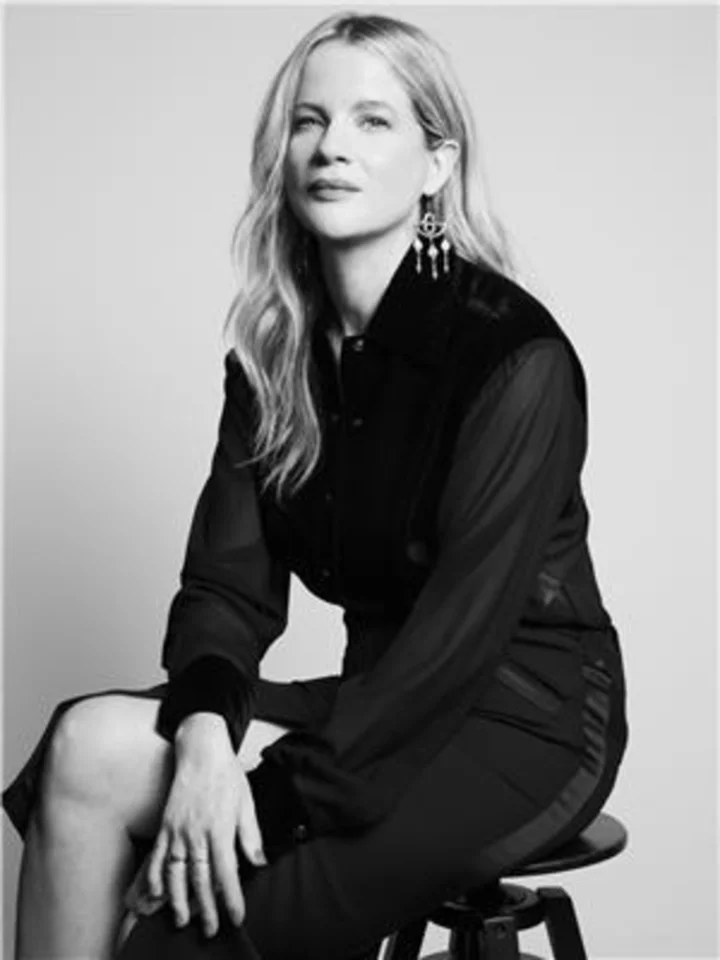MILAN (AP) — Sabato De Sarno wants people to fall in love anew with Gucci — his Gucci — calling his debut collection “Gucci Ancora,” Italian for “Gucci Again.”
The title is a touching admission of the challenges facing Gucci's new creative director, who joined the fashion powerhouse this summer from Valentino, where he worked for 14 years after stints at Prada and Dolce & Gabbana.
The question is: can De Sarno do again what his predecessor Alessandro Michele was able to achieve by exciting the public to swarm to Gucci, pacing revenues at a sustained double-digit growth for French owner, Kering? Until the inevitable dip.
De Sarno’s debut Friday, nine months after being hired in the wake of Michele’s surprise departure, was the most anticipated on the Milan Fashion Week calendar for next spring and summer womenswear.
The fervor was enough to fill the front row with Hollywood A-listers including Julia Roberts and Ryan Gosling. Anti-fur protesters briefly infiltrated the runway, creating a momentary flurry before being quietly removed.
What the collection wasn’t: It wasn’t overtly sexy in a sultry way, like in the Tom Ford-era. Nor was it eclectic, like Michele’s romantic, gender-fluid vision. Both marked boom periods in the 100-year history of the brand founded by Guccio Gucci after a stint as a bellhop in London.
In one recent interview, De Sarno professed admiration for Brutalist architecture, suggesting a love of the essential, and his collection was exactly that.
The Gucci logo was sparingly deployed. The Gucci stripe made a few cameo appearances.
A simple gray sweatshirt excited one fashionista to stand up in the third row to grab a photo. Is this the deliverance the fashion world has been waiting for? Or was it more the novelty of absence, the promise of simplicity?
There’s lots for a body-confident Gen-Z to love, without being pushed toward sensuality.
To wit: White tanks, which another brand has done to great success, paired with very short shorts and a double-G logo belt. There was a baby-knit culotte and matching polo with Gucci stripe detailing, worn without pretension. A tiny leather bra top in embossed leather was paired with a matching midi skirt. A series of pretty shift dresses had a simple, sculptural appeal.
Instead of the stilettoes of the 1990s, most looks were paired with platform loafers.
Fringe was one of De Sarno’s few adornments, casting movement on a pair of skirts. Shoes in the closing looks rustled with tinsel — some of which were reminiscent of Michele’s fur-lined loafers. And a series of shifts for the evening were decorated with rhinestones.
A forecast of rain forced the show from the cobblestoned streets of Brera, flanked by Milan’s stoic architecture — a setting that would have imbued the looks with their street sense. Instead, it was held in a boxy black showroom in Gucci’s Hub on the edge of the city, which failed to offer the same context.
Gucci's roots as a leather goods company makes it an empty vessel to be filled and shaped to the will of each creative director — as history shows at times making drastic shifts in direction.
The conversation started this week by De Sarno is to be continued.









